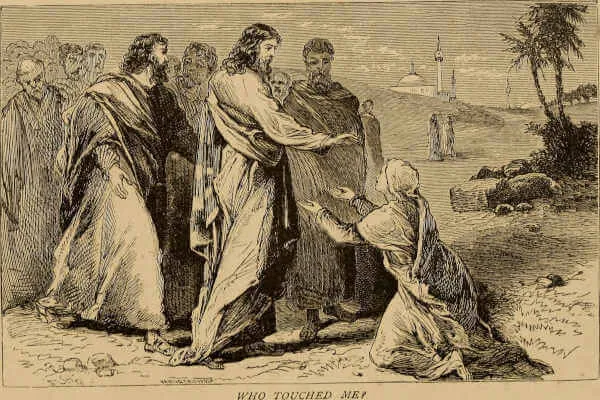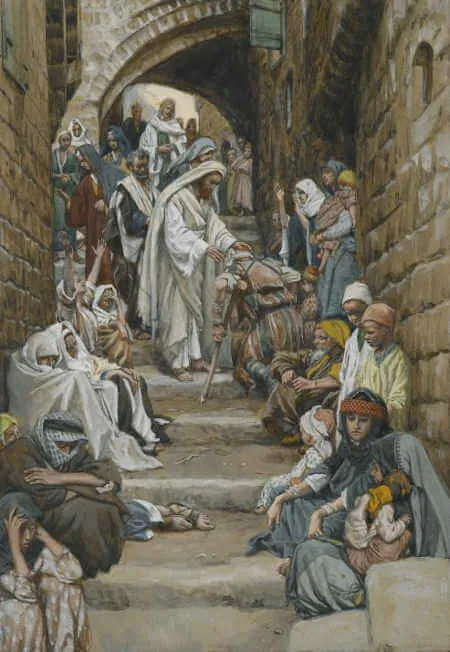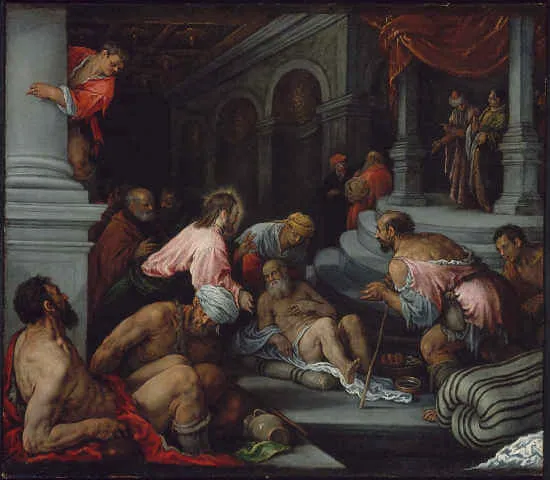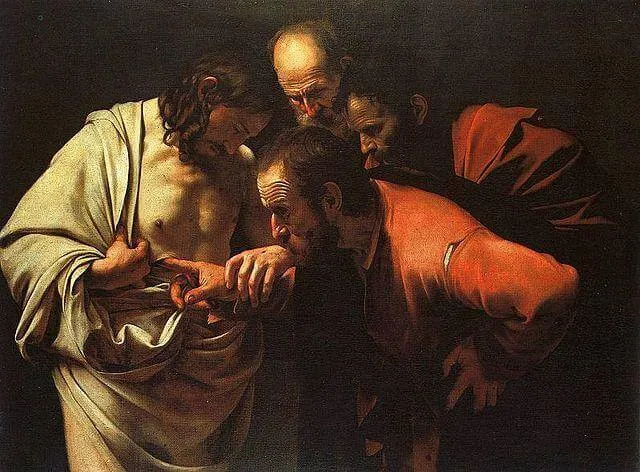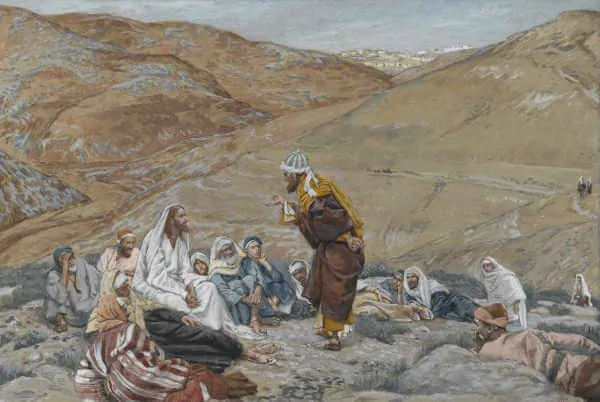Matthew 10:5-7
Proclaiming the Kingdom
Jesus sent out these Twelve after instructing them thus, “Do not go into pagan territory or enter a Samaritan town. Go rather to the lost sheep of the house of Israel. As you go, make this proclamation: ‘The Kingdom of heaven is at hand.’”
Reflection:
The very last words of Jesus, just prior to His Ascension into Heaven, expands the mandate we read above that Jesus gave to His Apostles. He later says, “Go, therefore, and make disciples of all nations, baptizing them in the name of the Father, and of the Son, and of the Holy Spirit…” (Matthew 28:19). Eventually, Jesus sends the Twelve and all of His disciples to the ends of the earth to proclaim the Gospel to every creature. But here, prior to the coming of the Holy Spirit, and prior to the completion of Jesus’ earthly mission, He instructs the Twelve to go only “to the lost sheep of the house of Israel.” Thus, Jesus gives a sort of priority to the preaching of the Gospel to those who have already been entrusted with the revelations of the Old Testament—that is, the teachings of the Law of Moses and the prophets.
Though, today, we must all hear the call from our Lord to “make disciples of all nations,” we must also hear this unique commission to first preach to those who are already members of the family of God. And though, today, the Holy Spirit has already come and the Gospel has already gone forth far and wide, there is still an important spiritual lesson to be learned by Jesus’ progressive commission from those of the family of God to those who do not yet know the Gospel.
Start with yourself. By hearing Jesus give special emphasis to His Twelve to go first to the lost sheep of the house of Israel, you should hear our Lord speaking especially about you. You, who were baptized, have been confirmed and have received Holy Communion, now have a special obligation to listen to and respond to the Gospel of Christ. From there, God entrusts you with the sharing of the Gospel in a special way to those who also share your faith. For that reason, parents are uniquely obliged to share the Gospel with their children. Friends within the same faith community are uniquely obliged to reach out to others who share their faith. And pastors of the Church must do the same. The Gospel is now universal and must be proclaimed to all people, but this passage appears to highlight the importance of sharing the Gospel with fellow disciples of Christ.
We know from our daily life that there are many who profess faith in Christ who still are not fully evangelized. There are many who have received the Sacraments but lack the deep faith to which they are called. It can appear that most fail to worship our Lord every day, and many fail in their prayerful worship each and every week. Therefore, it is useful to place yourself into this Gospel passage and to hear our Lord call you to especially devote yourself to the sharing of the Gospel with those who have already become members of His Church, even if it is only in name.
If we begin with ourselves, seeking to daily grow deeper in our life of faith, praying and seeking out the will of God, then God will more easily be able to use us as He wills to share the faith with those who belong to God’s family but whose faith may be weak. And for those who are “all in” and have truly given themselves over to Christ, God will certainly also use you for the proclamation of the Gospel to those who have not yet come to know Christ through the gift of faith.
Reflect, today, upon the invitation Jesus gives to you to be His evangelist. First, look at your own life and do all you can to allow the Gospel to transform you into a fervent follower of Christ. From there, be open to the many ways that God wants to use you every day to inspire others to become followers of our Lord. Start with your family. Pray for them. Be attentive to the promptings of grace God gives to reach out to them. Then turn your eyes, also, to the wider community. Allow the Lord to lead, follow His voice, and He will use you in many ways to help others come to know His burning love for them.
Source: https://catholic-daily-reflections.com/2024/07/09/proclaiming-the-kingdom-3/




